Clearsight cataracts
Has your vision progressively become more cloudy and blurry, and have colours seemed less vivid than before? And are you experiencing decreased night-vision, including glares and halos around lights? You might have even needed to change your eyeglasses prescriptions more frequently. If you are experiencing any of the symptoms mentioned above, you may have developed cataracts.

@ Clearvision Singapore
Pre-Cataract Operation Evaluation Fee
$380
Cataract Operation Fee
Surgeon Fee
$4,000
Standard Lens
~ $1,000
Multifocal Lens
~ $2,000
Prices are for one eye; Inclusive of 9% GST.
What are Cataracts?

A cataract is essentially a clouding or loss of clarity of the clear crystalline lens of the eye.
Cataracts are common as we age. It can be said that all of us will develop cataracts sooner or later in our life. Unsurprisingly, cataract surgery is one of the most common procedures performed throughout the world. If you are diagnosed with cataract, rest assured – a cataract is not a tumour or growth in the eye.
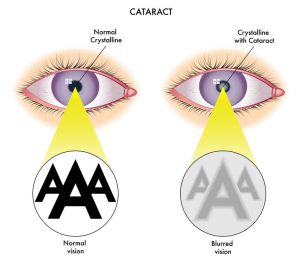
What causes Cataracts?
The most common cause of cataract is aging.
But there are other causes. In infants, a cataract may be caused by infection, chemical imbalance, or developmental abnormality. Hereditary factors may also play a role in the development of cataracts. Diabetes and taking certain long-term medications such as steroids can also speed up development of cataract. Other causes include injury to the eye, excessive exposure to sunlight, smoking and extreme myopia.

What are the symptoms?


Cloudy or blurry vision
Colours appear faded
Glare
Poor night vision
Seeing multiple images
How do I find out if I have Cataracts?
If you suspect that you have developed cataracts, you should undergo an eye examination with your ophthalmologist. You will be taken through a series of eye tests, such as the Visual Acuity, Tonometry, Keratometry, and Refraction tests, a Dilated Fundus Examination, as well as a slit lamp examination. The doctor will then advise you on the most suitable treatment for your condition.
When do I know to go for Cataract surgery?
The only treatment available for cataract is to replace the eye’s natural lens with an artificial lens. There are no eye drops, pills or diets that are proven in curing cataracts. Lasers too cannot be used to remove cataracts.
The principles of cataract surgery are simple. The cloudy lens is removed and replaced with an artificial intra-ocular lens implant made of biocompatible material such as acrylic, silicone or plastic materials. As every person’s eye power is different, the implanted lens has to be customized in terms of the lens power to neutralize most of any pre-existing refractive errors. This means that after cataract surgery, all patients can look forward to better vision without glasses!
How can Cataracts be treated?
Early cataracts could be controlled by eye drops to slow down its progression. If you are diagnosed with mature cataracts, the ophthalmologist may advise a cataract surgery for you. Fortunately, with modern technology, cataract surgery is a safe surgical procedures, usually taking about 15 minutes per eye by a capable surgeon. A successful cataract treatment will restore your vision, giving you a clear vision.
If preventive measures are ineffective, the only available treatment is surgery, to replace the eye’s lens with an artificial lens. There are no eye drops, pills or diets that are proven in curing cataracts. Lasers too cannot be used to remove cataracts.

The principles of cataract surgery are simple. The cloudy lens is removed and replaced with an artificial intra-ocular lens implant made of biocompatible material such as acrylic, silicone or plastic materials. As every person’s eye power is different, the implanted lens has to be customized in terms of the lens power to neutralize most of any pre-existing refractive errors. This means that after cataract surgery, all patients can look forward to better vision without glasses!
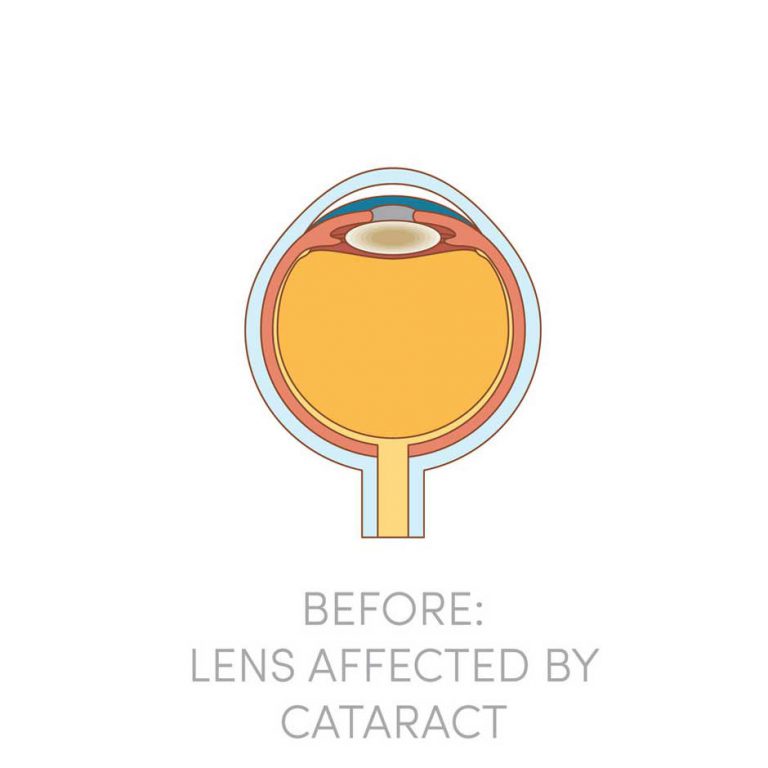
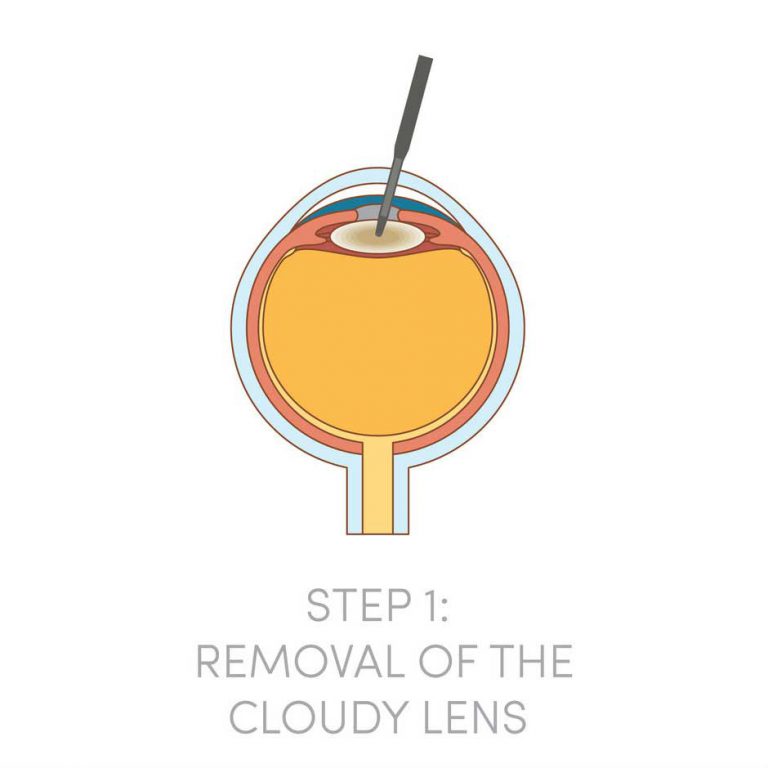
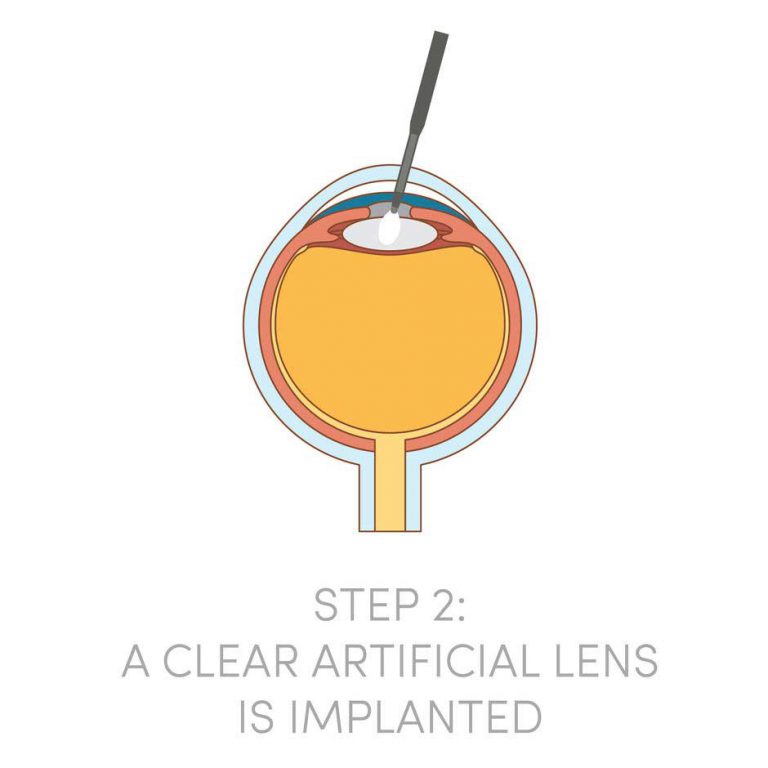
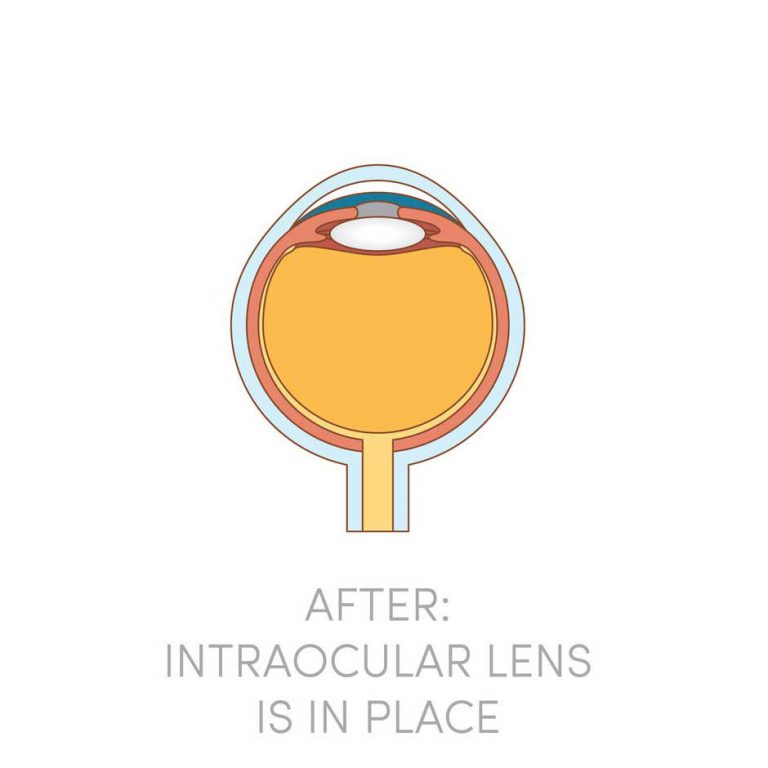
What should I expect if I wish to have Cataract surgery?
If you wish to have cataract surgery here at Clearvision, our doctor will perform a Biometry eye test to determine the type of Intra-Ocular Lens to be inserted into the eye (to replace the natural lens of the eye). Thereafter, we will help you book a suitable timing for your surgery. You will just need to arrange for about 4 to 5 days of recovery time.
Modern cataract surgery is done as an outpatient procedure, meaning that no hospital stay is required. In the hands of a competent eye surgeon, it is a fast surgery done in 15 minutes without stitches and under just eye drops anaesthesia. As it is a delicate surgery done under magnification using an operating microscope and micro-surgical instruments. Patient co-operation is required – they should not move their heads unnecessarily or squeeze their eyes hard throughout the procedure. If the patient is unduly apprehensive or tense or unlikely to co-operate, then a regional block anaesthesia or general anaesthesia may be recommended.
Currently, there are two main types of cataract surgery. These are Phaco-emulsification Cataract Surgery and Extra-Capsular Cataract Extraction Surgery.
What can I expect after Cataract surgery?
You should be fit to go home an hour or two after cataract surgery. Once the numbing effects of the eyedrops wear off, your eye may feel a scratchy or gritty sensation but this is normal. Your eye may or may not be padded depending on the doctor’s preference.
A great majority of patients may resume normal activities on the day or following day after surgery, such as moving around, bending down, and doing light work. However, there are some important things to remember while recovering from cataract surgery:
Be careful not to bump, rub, or touch your eyes. Wear the eye shield you have been given for 2 full days and at night for one week. When outdoors, wear sunglasses to provide comfort from bright light. Avoid crowded or dusty places. If washing your hair or face, avoid getting soap or water into the eye. Avoid using unclean tissues or handkerchiefs near the operated eye. Instead make use of sterile disposable-lid care wipes. Wash your hands before and after instilling eye drops. Continue applying antibiotic eye drops as prescribed by your doctor. Avoid strenuous physical activities including contact sports, gardening, swimming for two weeks. Refrain from using cosmetic products or eye make-up for at least one week.
Increased tearing and slight discharge are also common and should be a cause for alarm. Patients often notice that colours appear brighter and more brilliant. While improvements in vision are usually noticed within a few days, complete healing may take several weeks. See you eye doctor immediately if you experience any pain, unusual redness or excessive eye discharges.
Can I use Medisave or private insurance for Cataract surgery in Singapore?
Yes! Our staff will be able to assist your Medisave claim for your cataract surgery, with the maximum amount claimable of up to $2,450 per eye. You will be able to claim from either your own, spouse’s, or children’s Medisave account. You can check with your private insurance providers regarding the eligibility for cataract surgery claim.
If you suspect that you or your loved ones have developed cataracts, contact us today at 6733 5188 or email us at doctor@eyecare.com.sg to book an appointment with our ophthalmologist. Early diagnosis and treatment can help save your eyesight!
Book Your Cataract Evaluation
You will need to come down for a comprehensive cataract evaluation to determine if you will require cataract surgery.
If you would like to book your appointment with us,
📞 Call us at 6733 3316
📱 WhatsApp us at 8383 7989
✉️ Email us at doctor@clearvision.com.sg
🤳 Message us on Facebook
🤳 Message us on Instagram
The cataract evaluation costs $380 and will take around 1 – 2 hours.
It will include a series of eye tests as well as a personal consultation with our surgeon.

